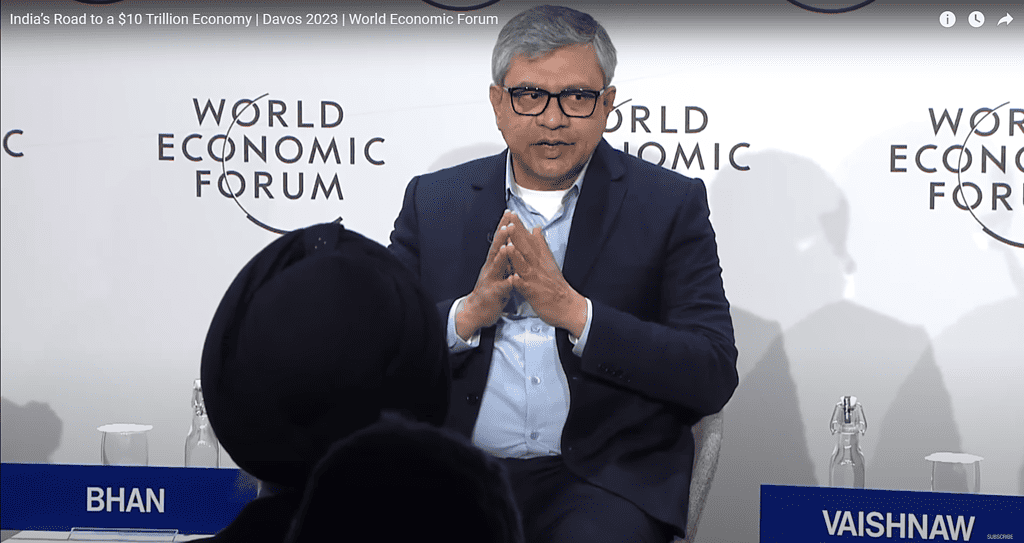In the heart of the Swiss Alps, where the world’s leaders gather to shape the destiny of nations, India’s journey in Davos unfolds as a compelling saga of commitment, collaboration, and contribution. Over the past five conferences, the stories emerging from India’s business houses—key players such as Ambani, Adani, and Mahindra—have not only mirrored economic strides but have positioned India as a torchbearer for global change. As the snow-covered peaks bear witness to these narratives, let’s embark on a journey through statistics and tales that underscore India’s significant contributions to Globalization 4.0, the quest for climate-friendly businesses, The Great Reset, the power of collaboration in a fragmented world, and the restoration of trust.
Table of Contents
2019: Navigating Globalization 4.0
In 2019, amidst discussions about the evolution of Globalization 4.0, India’s presence was marked by its unique approach to technological integration and inclusive growth. According to the World Economic Forum’s (WEF) Global Competitiveness Report, India had made substantial progress in the adoption of emerging technologies, fostering an environment conducive to innovation and entrepreneurship. The dialogue in Davos resonated with the potential of India’s digital economy to bridge societal gaps and propel the nation into the forefront of the Fourth Industrial Revolution.
!Also Read: Modi Guarantee Mission – Developed Country Bharat by 2040
2020: Crafting Climate-Friendly Businesses
In 2020, the spotlight on climate change intensified, compelling India’s business leaders to recalibrate their strategies. Notably, Adani Group’s strides in renewable energy projects were acknowledged, with a Reuters report highlighting a significant increase in clean energy investments. Mahindra, too, was recognized for its commitment to sustainability, showcasing electric mobility initiatives that aimed to reshape the automotive industry. The Davos discussions echoed the imperative for businesses to not only adapt to a changing climate but also actively contribute to its preservation.
2021: The Great Reset and Working Together
Amid the challenges posed by the COVID-19 pandemic, Davos 2021 saw discussions on The Great Reset, emphasizing the need for a collective global effort to rebuild a more inclusive and sustainable world. India’s business houses, though not explicitly named, played a crucial role. The Economic Times reported India’s commitment to reforms and sustainable practices, aligning with the principles of The Great Reset. As the world grappled with the pandemic’s aftermath, the consensus in Davos was clear: working together was not just an option but a necessity.
2022: Restoring Trust in a Fragmented World
In 2022, as geopolitical tensions cast a shadow, restoring trust became a central theme. A PwC report highlighted India’s efforts in strengthening its economic governance and fostering transparency. The role of businesses in building trust was underscored, with a joint initiative by Indian companies, including Adani and Mahindra, to promote ethical business practices. In a world marred by fragmentation, Davos acknowledged India’s commitment to fostering trust and collaboration for a more stable global order.
!Also Read: Exclusive India set to become 10 trillion economy by 2030
2023: Cooperation in a Fragmented World
In the most recent Davos conference, held in 2023, cooperation took center stage as nations grappled with the challenges of a fragmented world. A World Bank report showcased India’s efforts to collaborate on international development projects, signaling a shift towards more inclusive and cooperative models. The discussions in Davos underscored the importance of collective action to address global issues, and India’s role in fostering cooperation was recognized.
Davos Conclusion:
India’s journey in Davos over the past five conferences has been a testament to its commitment to global progress. From navigating the complexities of Globalization 4.0 to crafting climate-friendly businesses, contributing to The Great Reset, working together in times of crisis, and actively participating in the restoration of trust and cooperation in a fragmented world, India has showcased a multifaceted approach to addressing global challenges. As we reflect on these narratives, one question lingers: How can the lessons learned from India’s journey in Davos inspire other nations to forge a path towards a more collaborative, sustainable, and interconnected world?
